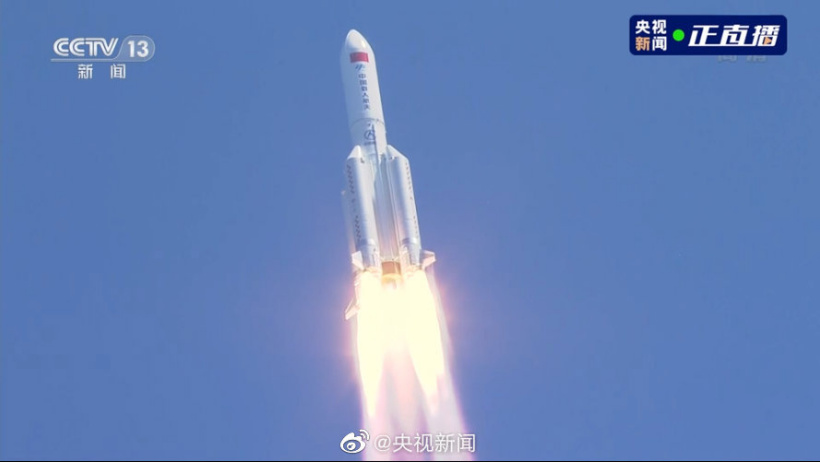Uncontrolled Chinese rocket crashes down over the Indian Ocean

China's Long March 5B rocket re-entered the planet's atmosphere over the Indian Ocean, landing near Sarawak, a Malaysian state on Borneo. The US Space Command verified the rocket's return at 12:45PM ET, but it is still unknown where its debris fell. China's Manned Space Agency stated that the rocket returned in the same area and that most of it burned up on its way down in a translated post on Weibo.
China used a Long March 5B rocket to launch a lab module to its unfinished Tiangong space station on July 24th. When delivering its payload, the Long March 5B thrusts its first stage into orbit unlike most rockets. This enormous piece, which is over 100 feet long and weighs over 22 tons, orbits the globe for a while before coming crashing down to Earth with no means of control.
The uncertainty about where the rocket would land spread across the world this past week, with projections ranging from Mexico to the southern tip of Africa. This is China's third Long March 5B launch, and it has a track record of three out-of-control landings. In 2020, China launched a Long March 5B to put Tiangong's core module into orbit using a previous model. The debris from the rocket landed in Ivory Coast, but no injuries were reported and there was some structural damage. Last year, China employed its first lab module on board a Long March 5B and dispersed the pieces into the Indian Ocean.
Malaysian users on Twitter recorded the rocket's apparent reentry, with some speculating it was a meteor. Jonathan McDowell, an astrophysicist at the Harvard-Smithsonian Center for Astrophysics, thinks debris from the rocket might land near Sibu, Bintulu, or Brunei — three towns along Borneo's northern coast — but thinks it's "unlikely" that it landed in a populated area.
Reentry looks to have been observed from Kuching in Sarawak, Malaysia. Debris would land downrange in northern Borneo, possbily Brunei. [corrected] https://t.co/sX6m1XMYoO
— Jonathan McDowell (@planet4589) July 30, 2022
In a tweet, NASA's Bill Nelson responded to the doomed landing. “The People's Republic of China did not provide specific trajectory information as their Long March 5B rocket fell back to Earth,” he states. “All spacefaring nations should follow established best practices and share this data in advance so that reliable predictions of potential debris impact risk, especially for heavy-lift rockets like the Long March 5B that carry a significant danger of loss of life and property, may be made.”
Unfortunately, this isn't the last out-of-control rocket to strike the ground. China plans to use a Long March 5B to launch the country's third and final module, Tiangong 3, in October. In 2023, it will deploy a telescope using the same rocket.
Source: www.theverge.com